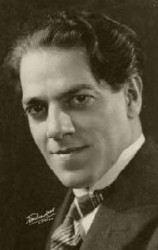By: Daniel Nardini

Note: in honor of Hispanic Heritage Month, I have chosen to write about famous and not-so-famous Latin American and Latino composers who have made great contributions to the world symphonic repertoire.
Heitor Villa-Lobos is probably the best known Latin American composer. Heitor Villa-Lobos was born in Rio de Janeiro on March 5, 1887. His father, Raul Villa-Lobos, was of Spanish extraction and was wealthy. Because of this Heitor Villa-Lobos was sent to the Conservatorio de Musica. Eventually Heitor Villa-Lobos learned how to play the cello, the clarinet and the guitar. Since European symphonic music was the norm for Brazilian students to learn, Heitor Villa-Lobos learned something of this musical tradition.
However, in 1899, Raul died, and Heitor Villa-Lobos was forced to compose music in cinemas and theaters to help support his family. During this time Villa-Lobos traveled extensively throughout Brazil and began to learn of the rich musical traditions of Brazilian folk music and also music performed by the Amazonian Indians. One of Villa-Lobos’ first musical pieces were symphonic poems called Amazonas and Uirpuru . They reflected the music of the Amazon. in 1912, Villa-Lobos married a pianist named Lucilla Gemares and settled down into a professional career as a composer. At that time he met the well-known pianist Arthur Rubinstein who encouraged him to go to France.
During this time he traveled Paris, France, where he met composers like Leopold Stokowski and American composer Aaron Copland who was also studying in Paris. Villa-Lobos produced musical scores like Quarteto Simbolico which was a symbolic piece on urban Brazilian life. In 1930, Getulio Vargas staged a military coup in Brazil and took control of the country. Because Brazilians were prohibited from sending money abroad during this period for travel (due to the government’s fear most of Brazil’s financial assets would be taken out of the country), Villa-Lobos stayed in Brazil. During this time Villa-Lobos composed many patriotic Brazilian musical pieces that included Guia Pratico and Canto Orfeonico that contained patriotic songs for school and civic ceremonies. In 1936, Villa-Lobos left his wife and went to live with his mistress Arminda Neves d’Almeida, who would remain his companion until his death. In 1941, Villa-Lobos would be part of a government committee that would work to create the definitive version of the Brazilian national anthem.
When Vargas was overthrown in 1945, and a democratic form of government resumed in Brazil, Villa-Lobos was able to travel abroad again. During this time he was in much demand for his musical talents. Among his works was a musical score for the American movie “Green Mansions” commissioned by MGM and starring Audrey Hepburn and Anthony Perkins. Eventually Villa-Lobos’ health began to deteriorate and on November 2, 1959, Villa-Lobos died in his native Rio de Janeiro. Today Heitor Villa-Lobos is remembered as probably Brazil’s greatest composer.
[Note: in honor of Hispanic Heritage Month, I have chosen to write about famous and not-so-famous Latin American and Latino composers who have made great contributions to the world symphonic repertoire]
 America’s Favorite Travel Show is Back February 12, 2026
America’s Favorite Travel Show is Back February 12, 2026 Gov. Pritzker Celebrates Route 66 Centennial Kickoff February 12, 2026
Gov. Pritzker Celebrates Route 66 Centennial Kickoff February 12, 2026 Bill Payment Assistance Programs Available for Nicor Gas Customers February 12, 2026
Bill Payment Assistance Programs Available for Nicor Gas Customers February 12, 2026





Heitor Villa-Lobos
By: Daniel Nardini
Note: in honor of Hispanic Heritage Month, I have chosen to write about famous and not-so-famous Latin American and Latino composers who have made great contributions to the world symphonic repertoire.
However, in 1899, Raul died, and Heitor Villa-Lobos was forced to compose music in cinemas and theaters to help support his family. During this time Villa-Lobos traveled extensively throughout Brazil and began to learn of the rich musical traditions of Brazilian folk music and also music performed by the Amazonian Indians. One of Villa-Lobos’ first musical pieces were symphonic poems called Amazonas and Uirpuru . They reflected the music of the Amazon. in 1912, Villa-Lobos married a pianist named Lucilla Gemares and settled down into a professional career as a composer. At that time he met the well-known pianist Arthur Rubinstein who encouraged him to go to France.
During this time he traveled Paris, France, where he met composers like Leopold Stokowski and American composer Aaron Copland who was also studying in Paris. Villa-Lobos produced musical scores like Quarteto Simbolico which was a symbolic piece on urban Brazilian life. In 1930, Getulio Vargas staged a military coup in Brazil and took control of the country. Because Brazilians were prohibited from sending money abroad during this period for travel (due to the government’s fear most of Brazil’s financial assets would be taken out of the country), Villa-Lobos stayed in Brazil. During this time Villa-Lobos composed many patriotic Brazilian musical pieces that included Guia Pratico and Canto Orfeonico that contained patriotic songs for school and civic ceremonies. In 1936, Villa-Lobos left his wife and went to live with his mistress Arminda Neves d’Almeida, who would remain his companion until his death. In 1941, Villa-Lobos would be part of a government committee that would work to create the definitive version of the Brazilian national anthem.
When Vargas was overthrown in 1945, and a democratic form of government resumed in Brazil, Villa-Lobos was able to travel abroad again. During this time he was in much demand for his musical talents. Among his works was a musical score for the American movie “Green Mansions” commissioned by MGM and starring Audrey Hepburn and Anthony Perkins. Eventually Villa-Lobos’ health began to deteriorate and on November 2, 1959, Villa-Lobos died in his native Rio de Janeiro. Today Heitor Villa-Lobos is remembered as probably Brazil’s greatest composer.
[Note: in honor of Hispanic Heritage Month, I have chosen to write about famous and not-so-famous Latin American and Latino composers who have made great contributions to the world symphonic repertoire]